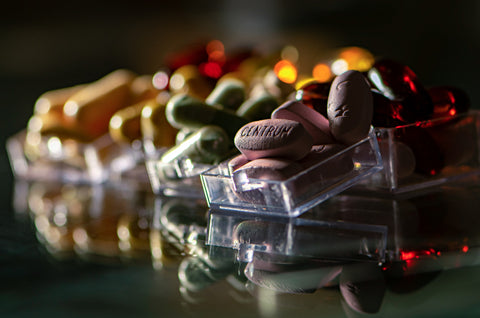Debunking common cancer nutrition myths
Misconceptions about cancer causes can lead to unnecessary worry about your health. Find out whether there is any truth to these common myths about the causes of cancer.

1. Myths - Having a well-balanced diet is essential throughout the cancer journey as this helps keep energy levels up, maintain a good immune system, and prevent malnutrition.
Fact- A well-balanced diet includes food from various food groups. It is important to note that dietary recommendations may differ based on the type of cancer and the presence of other medical conditions.

2. Myths: Cancer patients should not eat red meat.
FACT - Consuming sufficient protein from meat, dairy products, and meat alternatives such as tofu, nuts, and beans are recommended. Cancer patients might lose healthy tissues and muscle; thus, eating a good protein helps restore the damaged cell and muscle. Carbohydrates provide the primary source of energy for the body. Including fruits and vegetables into a diet can aid in regular bowel movement providing fiber, and their high antioxidant content also plays a role in cancer prevention. The intake of processed foods that are high in saturated (unhealthy) fats, salt, and added sugars should be avoided.

3. Myth: Traditional Chinese Medicine (TCM) or herbal supplements help to enhance the immune system.
Fact: There is little evidence to show the benefit of consuming TCM or herbal supplements to enhance the immune system in cancer patients. However, your doctor may prescribe vitamin or mineral supplements if there are any signs of nutrient deficiencies. As some TCM and herbal supplements may interact with cancer drugs, it is essential to check with your doctor before consuming any of these products.

4.Myth: Sugar from carbohydrate foods (e.g., bread, rice, fruits) should be avoided to feed cancer cells.
Fact: All cells in your body use glucose, a form of sugar, to function. Avoiding all carbohydrate foods will deprive healthy cells of energy which is necessary for recovery. Instead of choosing foods high in added sugars, it is recommended to opt for complex carbohydrates such as rice and bread, containing other essential nutrients such as fiber, vitamins, and minerals.
Eating high-calorie foods too often or in large quantities can lead to weight gain, and there is strong evidence that being overweight or obese increases the risk of 12 cancers. That is why we recommend cutting down on high-calorie foods and avoid sugary drinks, and eating a healthy balanced diet that is rich in nutritious and filling foods, such as whole grains, fruit, vegetables, and pulses.

5. Myth: Eating soy products increases the risk of developing breast cancer.
Fact: There is currently no evidence showing that natural soy foods such as soybeans, soymilk, and tofu increase breast cancer risk or recurrence. These foods are good sources of protein, especially for people who follow a vegetarian or vegan diet. However, the effect of consuming processed soy products such as soy supplements and mock meats on breast cancer risk is unclear. It is recommended to include natural soy foods in the diet and avoid processed soy products.

6. Myth: Acidic diets can cause cancer.
Fact: There is no good evidence to prove that an acidic diet has an impact on cancer. Are alkaline diets are just a hoax? There is plenty of research that demonstrates that despite the acidity or alkalinity of the food we eat, it does not change the pH levels of our blood. Secondly, when cancer cells develop, they also produce their acidic environment to survive, which keeps the cancer thriving, not the pH level. Many nutritious are also acidic. Opt more balanced diet.

7. Myth: Taking a multivitamin lowers my cancer risk.
Fact: Research suggests that taking a multivitamin or other supplement does not lower our cancer risk. In some cases, high doses of supplements have even been shown to increase risk.

